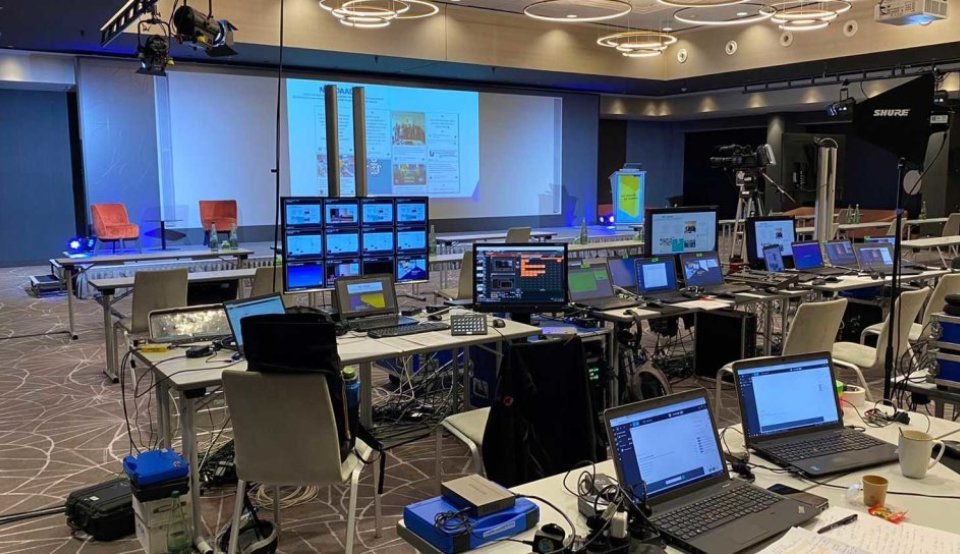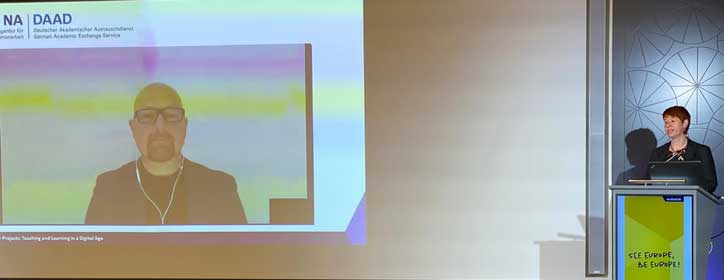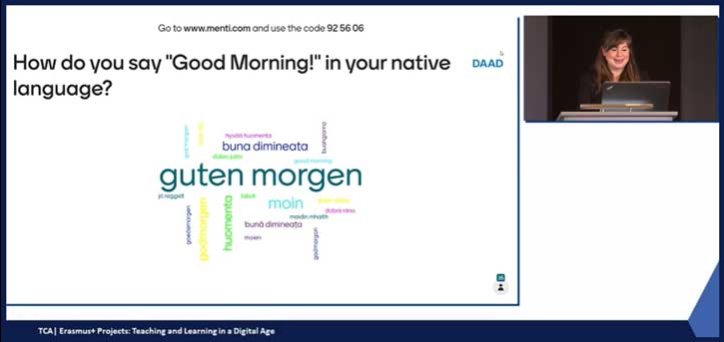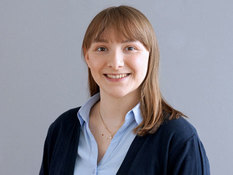Transnational Cooperation Activity – Erasmus+ Projects: Teaching and Learning in a Digital Age

After much back and forth due to the uncertainty caused by the pandemic, the NA DAAD was glad to host the event. It was moderated by the German National Agency’s Head of Erasmus+ Partnerships and Cooperation Projects, Beate Körner, from the Marriott Hotel in Cologne, Germany.
Although the NA had originally planned to invite guests and speakers from across Europe to join us there for a two-day conference, Covid-19 only permitted the implementation of a one-day virtual event from this location without a live audience. While the live audience was sorely missed, the NA DAAD sought to provide its participants with an opportunity to explore new digital formats and their relevance for the development of European higher education cooperation.
The conference was opened by the Director of the NA DAAD, Dr. Stephan Geifes, who expressed the continued importance of European exchange and collaboration in the face of current challenges presented to the Erasmus+ community. The TCA Officer of the German National Agency, Amanda Henson, then – and throughout the conference – proceeded to interactively engage the audience with an icebreaking activity via the platform Mentimeter. For example, participants shared which countries they were representing, how to say “Good Morning” in their native languages and what their expectations were for the conference.
Keynote on the growing interconnectivity of our world
This TCA sought to address internationalisation through means of digitalisation, and with the support of many knowledgeable experts, the event focused on digital components for teaching and learning through the implementation of Erasmus+ projects. Dr. Dominic Orr, an Adjunct Professor at Nova Gorica University and Team Lead at antigi.org, introduced the audience to the topic with his keynote speech “Teaching and Learning in a Digital Age – New Connectivities”. He explained the role of the internet and digitalisation in the growing interconnectivity of our world and how this interconnectivity is interpreted by everyday users online.

Click for Twitter #TCAdigitalErasmus / DAAD
From his theoretical foundation, our all-female panel, Dr. Ellen Fetzer and Anna-Maria Roth of Germany, Anna Beitane of Estonia and Dr. Alessandra Antonaci of the Netherlands, discussed the realities of practical implementation in their relative fields in the session “Closing the Gap: Digital Understandings of Learners, Teachers and Wider Society”.
Compactly informed: Breakout into the Project Market
In order to facilitate exchange between participants, the audience was then asked to leave the plenary to attend the Project Market. 15 Erasmus+ Projects from Key Actions 2 and 3 presented current digital realities and future digital opportunities. There were project representatives from Germany, the Czech Republic, the UK, the Netherlands, Sweden, Finland, Spain and Belgium representing the Erasmus+ action lines Strategic Partnerships, Knowledge Alliances, Jean Monnet Activities, Forward Looking Cooperation Projects and European Experimental Actions. Projects were presented to the audience working on digital learning apps in the fields of mathematics, European studies and language learning, projects developing online training in the fields of occupational therapy, healthcare and teacher education, MOOCs on archeology, as well as the gamification of topics such as European identity, economics and educational training.
On the home stretch: Infos from the EU and collected impressions
The conference then returned to the plenary format in order to welcome a representative of the EU Commission, Harpa-Sif Arnasdottir. She presented the EU’s vision of the future in terms of Digitalisation and (funding) opportunities in the next Erasmus+ Programme Generation 2021-2027. The presentation generated a lot of interest amongst the audience and was followed by a lively Q&A discussion in real-time via Mentimeter.
Mentimeter was also used to conclude the conference with a blended use of interaction from the audience and our panelists, Mareike Fröhlich of Germany, Gerry O’Sullivan of Ireland and Kaija-Liisa Kivimäki of Finland, in order to collect impressions of the day and to discuss the way forward. Mr. O’Sullivan from the Irish National Agency HEA in particular expressed appreciation for and interest in virtual events but echoed the opinion of many participants in the audience that it is impossible to replace in-person exchange and networking online. In agreement, Ms. Körner articulated this need as well by announcing that a second part to this event would be held in person as soon as the circumstances permit.
The NA DAAD would like to thank all speakers, panelists and project presenters for their support in making this event a success. The NA would also like to thank all participants who attended from all corners of Europe and we look forward to being able to welcome you all again for another valuable exchange in the near future.
Impressions
“It was a great pleasure and honour to take part in the event. It was very fruitful, I got a lot of new ideas. I have to admit that you have set a new benchmark in terms of organization of a videoconference. Thank you very much for the effort and time devoted, it was an admirable achievement.”
“Thanks for the day. Nice to see how alive an online coordination can be with the use of different tools!”
“As much I would [have loved] to be in person at the event, the organisers did a phenomenal job transforming the TCA in an online event.”
“There should [have been] more space for networking, e.g. in separate virtual cafés.”
“The event for an online event was too long by covering a full day [...] Splitting it into 2 days, but half days would have been better.”
| Date | 24. November 2020 |
| Place | virtually |
| Target Group | project coordinators, experts from the relevant academic fields, professors, interested parties from the field of digitisation, political stakeholders |
| Programme | TCA Programme |
| Registration | closed |
| Documents |
|



